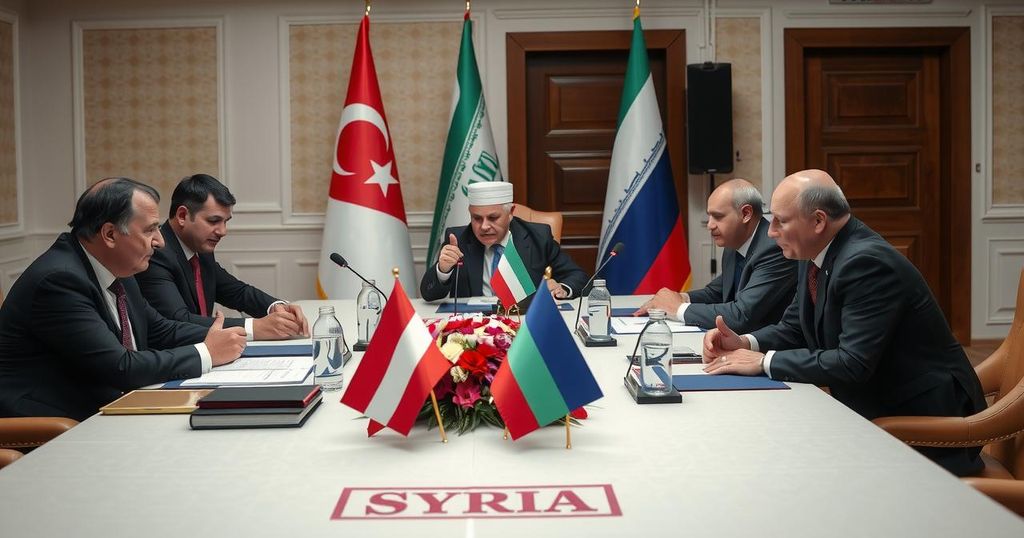On December 7, 2024, the foreign ministers of Türkiye, Iran, and Russia met in Doha to address recent military advances by anti-regime forces in Syria. They agreed to initiate political dialogue between the Syrian government and opposition groups, marking an important step amid shifting dynamics in the conflict. The situation remains critical, with concerns about the broader implications for regional stability.
On December 7, 2024, the foreign ministers of Türkiye, Iran, and Russia convened in Doha, Qatar, to discuss the ongoing conflict in Syria, focusing on recent developments regarding anti-regime forces. Iranian Foreign Minister Abbas Araghchi reported that the discussions led to an agreement on initiating political dialogue between the Syrian government and recognized opposition groups. This trilateral engagement is part of efforts since 2017 under the Astana format, aimed at reaching a political resolution to the Syrian crisis.
The context of the meeting is critical; rapid territorial gains by anti-regime factions have intensified the urgency for diplomatic action, especially as these groups have reportedly begun the final phase of encircling the capital, Damascus. While the Syrian defense ministry has denied claims of the army withdrawing from strategic locations near the capital, the situation remains precarious. President Recep Tayyip Erdoğan reiterated his hope that the anti-regime movement would advance, emphasizing the necessity for President Assad to reconcile with the opposition.
In the backdrop of these developments is the counteroffensive led by Hayat Tahrir al-Sham and allied groups, which commenced on November 27 and has escalated violence across key areas including Aleppo and Hama. The necessity for collaborative political dialogue is further underscored by the acknowledgment from Araghchi regarding the potential threats posed by escalating violence, not only to Syria but to neighboring nations such as Iraq, Jordan, and Türkiye.
Historically, Qatar has tilted towards support for opposition forces since the onset of the Syrian civil war; however, it now advocates for a negotiated resolution to the conflict. The remarks by Iran, Türkiye, and Russia’s diplomats indicate a growing recognition of the complex and shifting dynamics in Syria, necessitating urgent political action.
The Syrian conflict, which began in 2011, has evolved into a multi-faceted war involving various domestic and international actors. Initially, Türkiye, Iran, and Russia engaged in cooperation through the Astana process starting in 2017 to facilitate peace talks and establish de-escalation zones. The recent military successes of anti-regime forces have drastically altered the landscape, prompting discussions among these powers on how to support a sustainable resolution. With ongoing clashes and territorial battles, the urgency for diplomatic engagement has increased, particularly concerning the stability of the region.
The recent meeting in Doha among Türkiye, Iran, and Russia reflects growing concerns surrounding the Syrian conflict and the urgency for diplomatic intervention as anti-regime forces gain ground. The ministers’ advocacy for a political dialogue signifies recognition of the complex dynamics that have emerged in the region, suggesting that concerted efforts are necessary to mitigate the risks of further destabilization across neighboring countries. As conditions in Syria evolve, so must the strategies of involved nations.
Original Source: www.hurriyetdailynews.com






